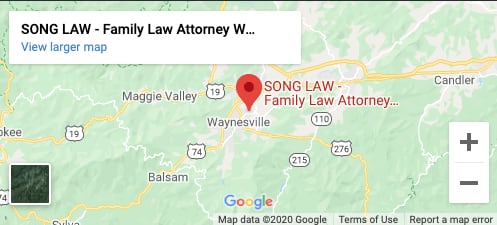Domestic violence is more common than we know. It affects rich and poor, people of all colors, young and old. It is a deep dark secret for a lot of people. The good news is that there is help for victims of domestic violence. The stigma that was formerly attached to it is diminishing, so more people are coming forward to report it and to stop it. In addition, there are more resources available to assist victims and more programs available to treat abusers than before. The following explains the law on domestic violence by answering frequently asked questions on the subject from our clients.
What is Domestic Violence?
Domestic violence is attempting to cause or intentionally causing bodily injury or placing the victim in fear of imminent serious bodily injury. Continued harassment can constitute domestic violence if it causes substantial emotional distress. There needs to be a current or former relationship between the victim and abuser such as spouses, parent/child, household members, or boyfriend/girlfriend.
What Do I Do if I am the Victim of Domestic Violence?
Get to a safe place immediately and call 911. If you do not have a safe place to go, go to a shelter or to a public place. Through the civil system you can seek a restraining order. The police can assist you in filing criminal charges.
Do I Have to File Criminal Charges?
No, but you should. The criminal court system has some procedures that the civil system does not have like probation and violent offender programs. These procedures can be very effective in dealing with abusers.
What is the Criminal Process?
The abuser will be arrested. He or she will have a bond hearing. If the circumstances warrant, the judge can deny bond. Most often, the judge will set a bond. If the abuser pays the bond, he or she will be released pending trial. One of the conditions of release should be that he or she not have any contact with you pending trial. At the trial, you will be represented by the District Attorney. If the abuser is found guilty, the judge will sentence him or her. The terms and conditions of his or her sentence depend on various factors including what crimes the abuser committed against you and prior offenses.
How Do I Get a Civil Restraining Order?
You have to file a complaint (lawsuit) seeking a Domestic Violence Protective Order (otherwise known as a restraining order or as a “50B”). If it is at night or on the weekend, you do this through the magistrate’s office. If it is during the week, you do it through the civil clerk of court. In the complaint, you set out the details of the act of violence or threat of violence that caused you to seek the Domestic Violence Protective Order. You will then appear before the judge or magistrate to describe what happened. If the judge or magistrate determines you are entitled to an emergency Ex Parte Protective Order, it will be issued at that time. Your abuser is not notified of or present for the emergency hearing. The emergency order is valid until there can be a hearing on the issue, at which hearing the abuser will be present.
This hearing is held within 10 days. If the judge determines at the full hearing that you are entitled to a Domestic Violence Protective Order, one will be issued. If you and the other party agree to do so, you may also enter a Domestic Violence Order, with or without findings of fact, by consent. This order will be valid for one year, but may be renewed at the end of one year for an additional time of up to two years.
What About Custody and Child Support?
The judge may deal with these issues in the civil domestic violence process. However, many judges prefer that those issues be handled in a separate court action. Even if the judge enters an order regarding custody or child support as part of the Domestic Violence Protective Order, that order may only be good for a short time, so you will need to file a separate complaint seeking custody and child support.
What About Alimony and Property Division? The judge is authorized to deal with these issues on a very limited basis (such as addressing a temporary distribution of the home and vehicles) in the civil domestic violence process. However, many judges prefer that those issues be handled in a separate court action, so you will need to file a separate complaint seeking alimony and equitable distribution.
What About False Accusations?
False accusations are made by people all the time. Sometimes these false accusations are made to get an upper hand in a child custody case. And sometimes, people make false accusations for the purpose of harassment. We have zealously represented hundreds of clients by defending them against the issuance of a domestic violence protective order. We can’t help that a false accusation has been made against you, but we can protect you in court. Contact us here and schedule an appointment today.


